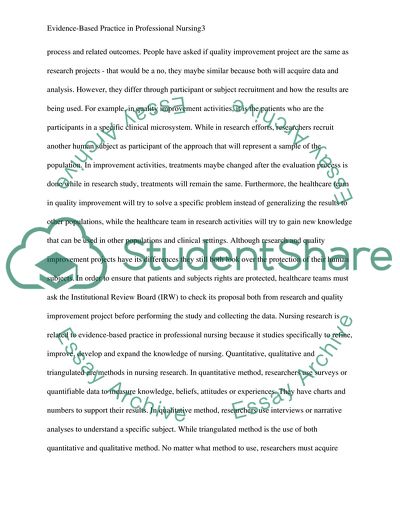Cite this document
(“Integration of Evidenced-Based Practice into Professional Nursing Research Paper”, n.d.)
Integration of Evidenced-Based Practice into Professional Nursing Research Paper. Retrieved from https://studentshare.org/nursing/1753096-integration-of-evidenced-based-practice-into-professional-nursing-practice
Integration of Evidenced-Based Practice into Professional Nursing Research Paper. Retrieved from https://studentshare.org/nursing/1753096-integration-of-evidenced-based-practice-into-professional-nursing-practice
(Integration of Evidenced-Based Practice into Professional Nursing Research Paper)
Integration of Evidenced-Based Practice into Professional Nursing Research Paper. https://studentshare.org/nursing/1753096-integration-of-evidenced-based-practice-into-professional-nursing-practice.
Integration of Evidenced-Based Practice into Professional Nursing Research Paper. https://studentshare.org/nursing/1753096-integration-of-evidenced-based-practice-into-professional-nursing-practice.
“Integration of Evidenced-Based Practice into Professional Nursing Research Paper”, n.d. https://studentshare.org/nursing/1753096-integration-of-evidenced-based-practice-into-professional-nursing-practice.


